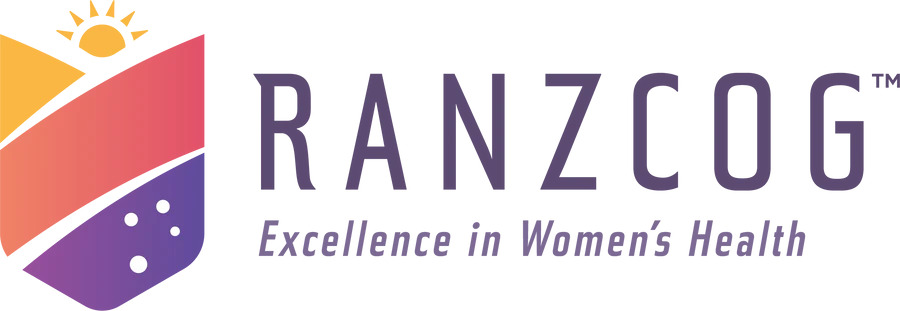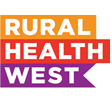Financial Assistance Programs
Financial Assistance Programs
-
Advanced Skills Support Program
-
Workforce Incentive Program Rural Advanced Skills Stream
-
Rural Procedural Grants Program
-
General Practitioner Procedural Training Support Program
-
HELP for Rural Doctors and Nurse Practitioners Initiative

The Advanced Skills Support Program is a partnership between the WA Country Health Service (WACHS) and Rural Health West to support general practitioners (GPs)/rural generalists (RGs) with advanced skills in Obstetrics, Anaesthetics or Emergency Medicine to commence or continue to practise independently in a rural location.
The funding support available includes, but is not limited to:
- Mentoring – Linked with an experienced mentor for up to 12 months. Eligibility includes those who have recently obtained their advanced skills, providing that the graduate will be working in a rural location in Western Australia where the workforce is vulnerable and where there is provision to work at a regional WACHS hospital.
- Immersion – Funding for trainees to experience a one or two-week rural immersion in a rural location. Eligibility includes doctors who are competing their advanced skills training, who at the completion of their training plan to work in a rural location where the workforce is vulnerable, and where there is provision to work at a regional WACHS hospital.
- Upskilling – Funding is available to undertake education courses and workshops including travel and accommodation expenses. Eligibility includes those who have attained their advanced skills who require support and upskilling to enable them to continue to practice in a location where the workforce is vulnerable.
- Clinical Visits – Procedural rural GPs/RGs can request a one-day visit from an experienced practitioner.
Please note: Those who are solely employed by WA Country Health Service are ineligible.
More information about the program is available on the Rural Health West website (external link).

The Workforce Incentive Program (WIP) Rural Advanced Skills Stream recognises that doctors working in regional, rural and remote areas are often required to use additional advanced skills (procedural and non-procedural) to meet the healthcare needs of their communities.
The new payments consist of two separate payment streams:
- Stream 1: Emergency Medicine – from $4,000 up to $10,500 per annum for doctors providing a minimum level of emergency care and emergency after hours services (in eligible locations).
- Stream 2: Advanced Skills – from $4,000 up to $10,500 per annum for doctors who hold recognised qualifications in advanced skills (such as obstetrics, anaesthetics, surgery, mental health and/or Aboriginal and Torres Strait Islander Health) and provide a minimum level of service using these skills.
The WIP Rural Advanced Skills Stream payments are:
- scaled to encourage service delivery in more remote areas
- based on the number of advanced skills rosters worked in eligible locations, with a roster defined as four hours or longer in a 24-hour period.
Eligible medical practitioners and rural generalists can claim either or both payment streams where they meet eligibility requirements and reach service thresholds.
More information about the program is available on the Australian Government Department of Health and Aged Care website (external link).


The Rural Procedural Grants Program (RPGP) helps cover the cost of professional development for procedural general practitioners (GPs)/rural generalists (RGs) who work in rural and remote areas. This ensures people who live in rural and remote areas have access to highly qualified health professionals.
Procedural GPs/RGs are doctors who have a specialised skill, such as in obstetrics, anaesthetics, surgery, emergency medicine, and emergency mental health.
The RPGP provides grants of up to $32,000 to rural GPs/RGs and locums who provide procedural services. This helps with the cost of attending continuing professional development activities, to maintain or increase their procedural and emergency medicine skills (including emergency mental health).
The funding is available to those who work in rural or remote areas, and covers expenses like:
- course costs
- locum relief
- travel costs.
The first step is to register with either the Australian College of Rural and Remote Medicine (ACRRM) or the Royal Australian College of General Practitioners (RACGP) for the program.
More information about the program is available on the Australian Government Department of Health and Aged Care website (external link).


The General Practitioner Procedural Training Support Program (GPPTSP) aims to improve maternity services for women living in rural and remote areas. It supports general practitioners (GPs)/rural generalists (RGs) in those areas to gain procedural skills in anaesthetics and obstetrics.
The GPPTSP provides grants of $40,000 to GP/RG fellows who work in rural or remote areas to obtain either:
- the Royal Australian and New Zealand College of Obstetricians and Gynaecologists (RANZCOG) Associate Advanced Procedural (APTP)
- a statement of satisfactory completion of Advanced Rural Skills Training in Anaesthesia.
Each year, the program funds up to:
- 10 places for the obstetrics component
- 10 places for the anaesthetics component.
The first step is to register with either the RANZCOG or the Australian College of Rural and Remote Medicine (ACRRM)for the program.
More information about the program is available on the Australian Government Department of Health and Aged Care website (external link).

This initiative reduces outstanding Higher Education Loan Program (HELP) debt for eligible doctors and nurse practitioners who live and work in rural, remote or very remote areas of Australia.
The HELP for Rural Doctors and Nurse Practitioners initiative gives eligible doctors and nurses the opportunity to reduce their outstanding HELP debt if they meet:
- the eligibility criteria
- their obligations to complete the required amount of eligible work in rural, remote or very remote areas of Australia (for this initiative, areas classified as Modified Monash Model 3 to 7 count as rural, remote or very remote).
Eligibility starts from 1 January 2022. If you are eligible for this initiative:
- your outstanding HELP debt will be updated each year through the taxation system
- an indexation waiver will apply to your outstanding HELP debt for the period you live and complete eligible work in a Modified Monash Model 3 to 7 area.
More information about the program is available on the Australian Government Department of Health and Aged Care website (external link).




